There’s a lot of technology out there that allows you to track and monitor consumer behavior. We’d even go as far as to say it’s easy for businesses to gather marketing data about customers.
But getting this information is only half the work. The real question is, how can you track and manage this information efficiently?
Enter marketing information management.
In this article, we’ll look at what marketing information management is, the benefits of using it, and how you can make your entire workflow more efficient with the right marketing information management software.
What does marketing information management do?
Marketing information management is the system that organizes and evaluates marketing operations.
From digital assets and market research, businesses use marketing information management to keep track of marketing activities and trends.
This information allows businesses to monitor their marketing activity and performance. It also allows marketing teams to better understand consumer behavior and tailor their marketing activity accordingly — we’ll talk about this more later.
What’s included in marketing information?
Marketing information management focuses on 3 main areas: internal data, competitive intelligence, and marketing research.
By using marketing information management, you can combine the information from all 3 of these areas. This allows you to sort and categorize your data in a way that everyone can understand. As a result, you can make better marketing decisions.
Now, let’s take a look at these areas in more detail.
Internal data
Internal data is information that’s only accessible by your internal team. For example, this could be any data about product sales, pricing strategies, brand positioning, or your latest marketing campaign.
When it comes to marketing, internal data is vital. You need this information to build your marketing strategy. Without it, your strategy could lack direction.
And that’s where marketing information management can help. It keeps all your internal data in one location, making it easier to track the information and make informed business decisions.
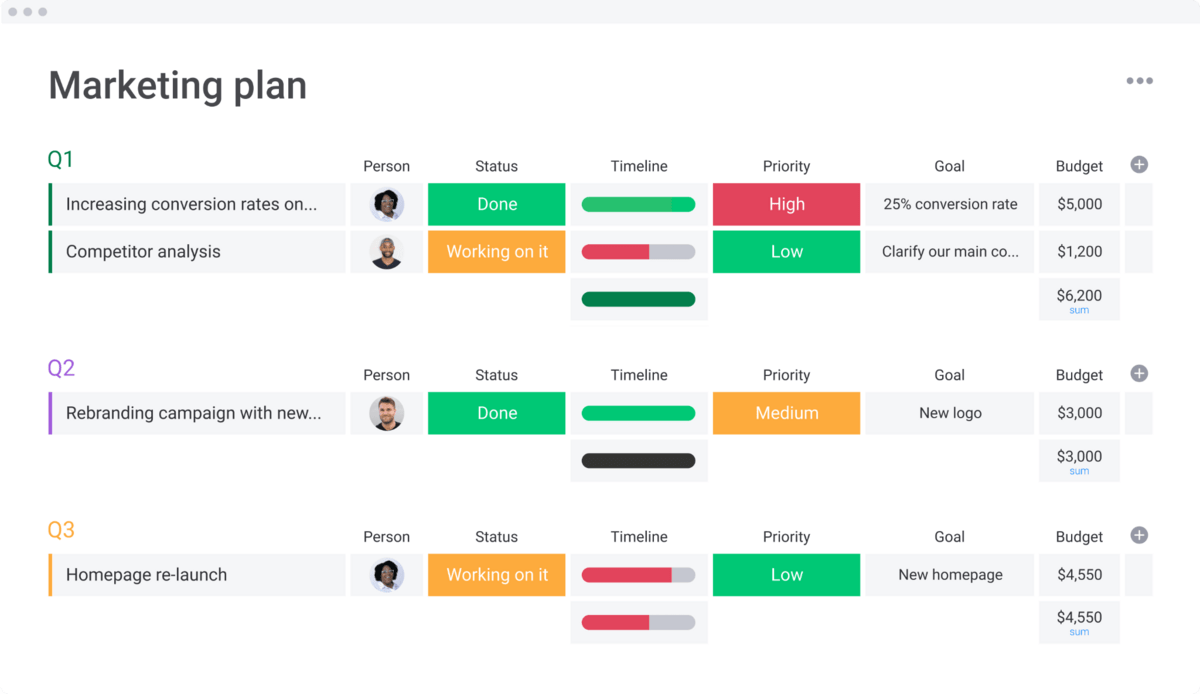
Competitive intelligence
All the information that shows how your business compares against your competitors is competitive intelligence. It helps you understand how your product or service ranks against your competition and shows you how to gain a competitive advantage.
Competitive intelligence includes a variety of information. Here’s some of what’s included:
- Your competitor research, including your current market share and position in the marketplace
- Any competitor insight or report from third-party sources
- Buyer intent data
- Product comparisons and reviews from consumers or industry experts
- Industry trends and market data
As you can probably tell, competitive intelligence includes a lot of different types of information. Fortunately, marketing information management helps you easily track, monitor, and analyze this information in a centralized location.
Depending on the software you use, you’ll be able to keep on top of competitor activity, industry trends, and even review how your position in the marketplace has changed over time.
Marketing research
Marketing research is the information you’ve gathered about the marketplace and your consumers. It helps businesses better understand what their consumers want and how their brand is perceived.
Here are a few of the common ways to conduct marketing research:
- Online surveys, whether a form or via social media
- In-person focus groups
- In-person interviews
- Secondary data from third-party reports and surveys
With the information gained from marketing research, you can figure out what improvements you need to generate more sales, change your brand perception, or just generally improve your business.
5 benefits of marketing information management
Now that we’ve outlined what marketing information management involves, let’s outline some of the benefits of using it.
1. Keep on top of marketing information
Over time, your business will accumulate a lot of marketing information. It’s inevitable. And without a proper information management system, you can lose track of that information.
This can lead to all sorts of problems, including:
- Skewed results from marketing campaigns
- Inaccurate forecasts for future business growth
- Inefficient resource management
- Overspending or underspending on budgets
That’s why it’s so important to use a marketing intelligence system.
Having a centralized marketing information system ensures that no information falls through the cracks. This means that everyone on your entire team can access all your marketing information, past and present, in one location.2. Organize your marketing information
As well as keeping on top of all your marketing information, a management system helps you keep it organized. This makes it easier for teams to quickly find the information they need, allowing everyone to work as productively and efficiently as possible.
monday.com is a pretty good example of this.
With monday marketing work management software, businesses can organize their accounts and store marketing information in workspaces and folders, which you can see on the left-hand pane of the board below:
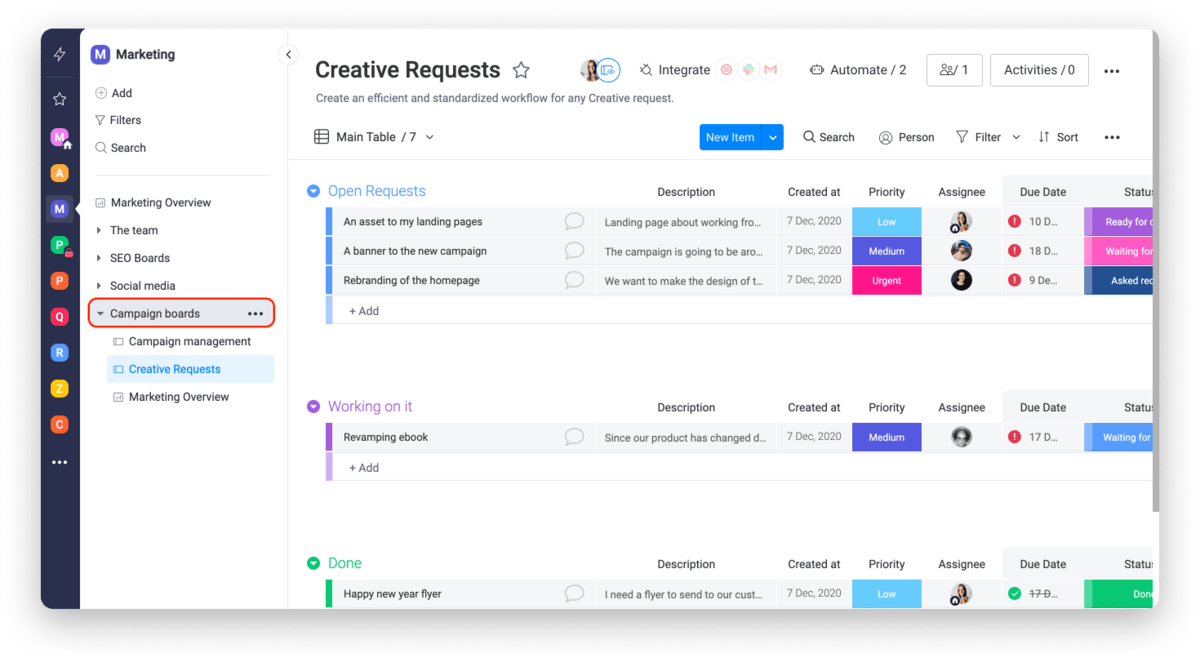
We even have a ‘tidy up’ feature in our admin section to help you keep things as organized as possible.
All of these features help businesses structure and organize their marketing information. As a result, everyone knows where the information is and can quickly access any marketing information they need.
3. Share marketing information across your business
Sharing marketing information across different departments is important.
For instance, sales representatives would benefit from having access to product data that shows which items sell the most. Your product design team would benefit from knowing what consumers think of the products they’re designing.
So it’s not just the marketing team that needs this information.
If you’re not using a marketing information management system, sharing this information becomes harder. You either have to manually share it with the relevant teams, or they have to ask you for it.
But if everything is stored in one location and easily accessible by everyone, sharing this information becomes easier. It’s more efficient for everyone involved and provides teams with access to information that’ll help them do their jobs better.
Take a look at monday.com, for example. On our platform, teams can easily share information — no matter what department they’re from.
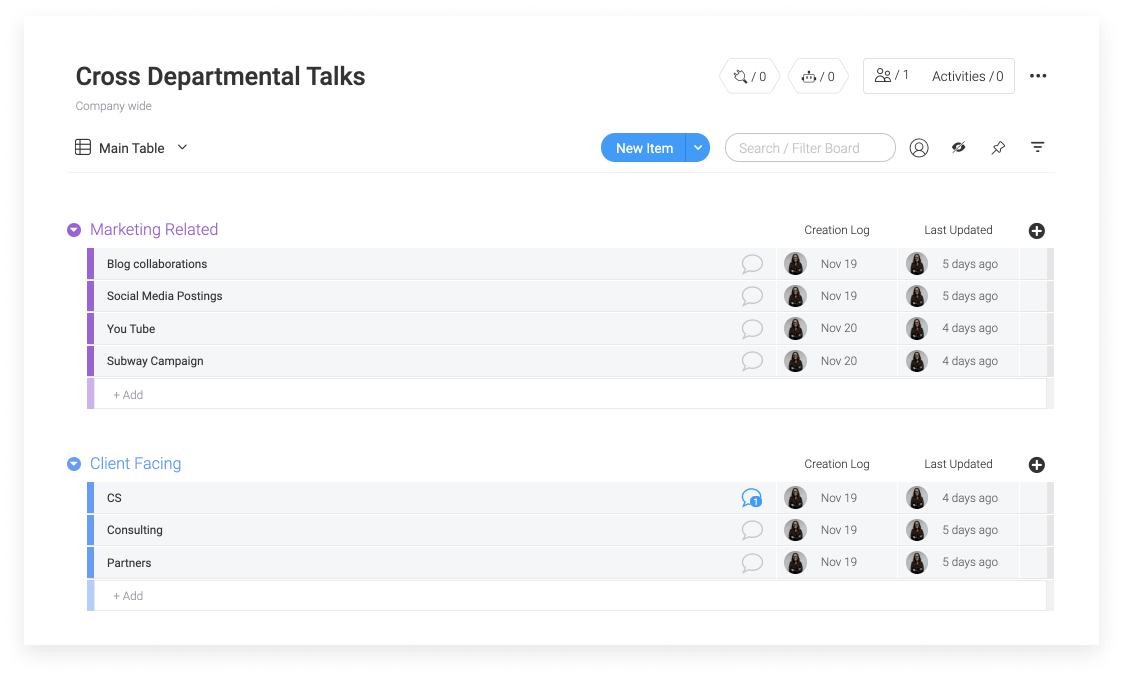
4. Understand your customers
66% of customers expect businesses to understand their needs and expectations. That’s over half of all consumers expecting companies to know exactly what they want.
The good news is that using a marketing information management system can help you better understand your customers.
It allows you to store, analyze, and review all the information you have about the following:
- Who your target market is
- What your consumers want from you
- How they perceive your brand
- How they behave when they buy from you
All of this information helps you understand your customers better and gives you the insight you need to provide them with a better experience.
5. Keep up-to-date with data privacy regulations and compliance
Following the pandemic, businesses have been struggling to keep themselves compliant. 65% of businesses admitted that the pandemic forced them to take shortcuts when it comes to due diligence.
But what does this have to do with a marketing information system?
Having all your customer data stored in a marketing information system makes it easier to keep on top of compliance and data privacy regulations.
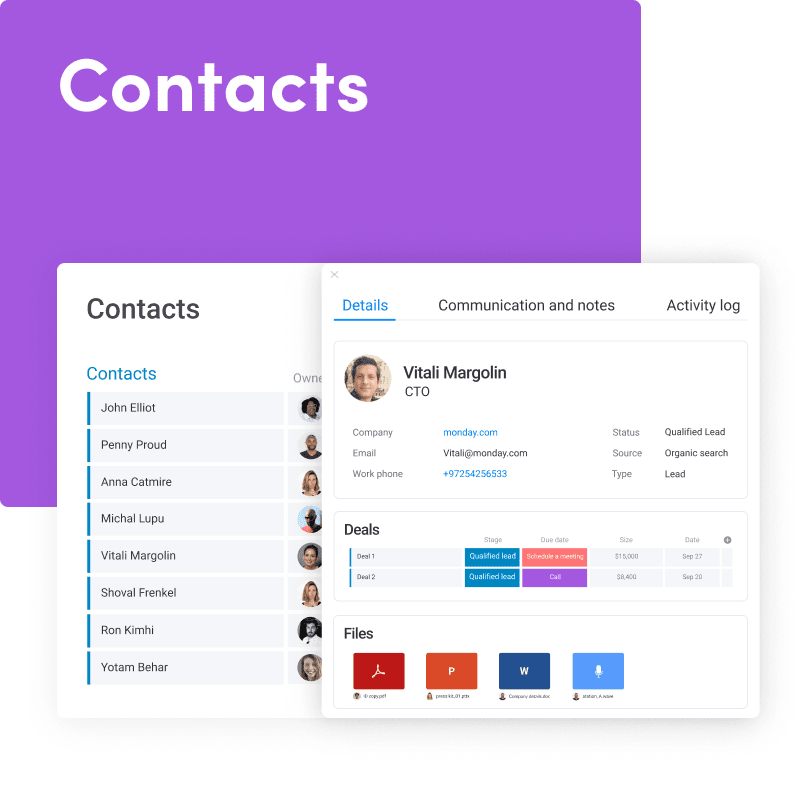
You’ll be able to monitor and control data in real-time and even automate some areas to save you having to keep things up-to-date manually.
Of course, this all depends on the software you’re using. If you choose a platform that offers automations — like monday.com — you’ll be able to streamline the data management process.
Take GDPR, for example. The legislation states that businesses shouldn’t store personal data for longer than is necessary.
To make sure you don’t hold on to data that’s no longer relevant, you can create an automation to remove contacts from your system after a certain amount of time. This means you don’t have to worry about manually keeping track of contacts and when to remove them from your system.
So, yes — marketing information management software can help you keep your business compliant. But not all software offers the same features, so make sure you think about what you need from a system to find a platform that’s right for your business.
Make your marketing information management more efficient with monday.com
monday.com helps teams organize and manage their entire workflow from start to finish — including their marketing information.
From planning and tracking marketing projects to creating dashboards that display valuable insights, our software allows teams to create a workflow that’s right for them.
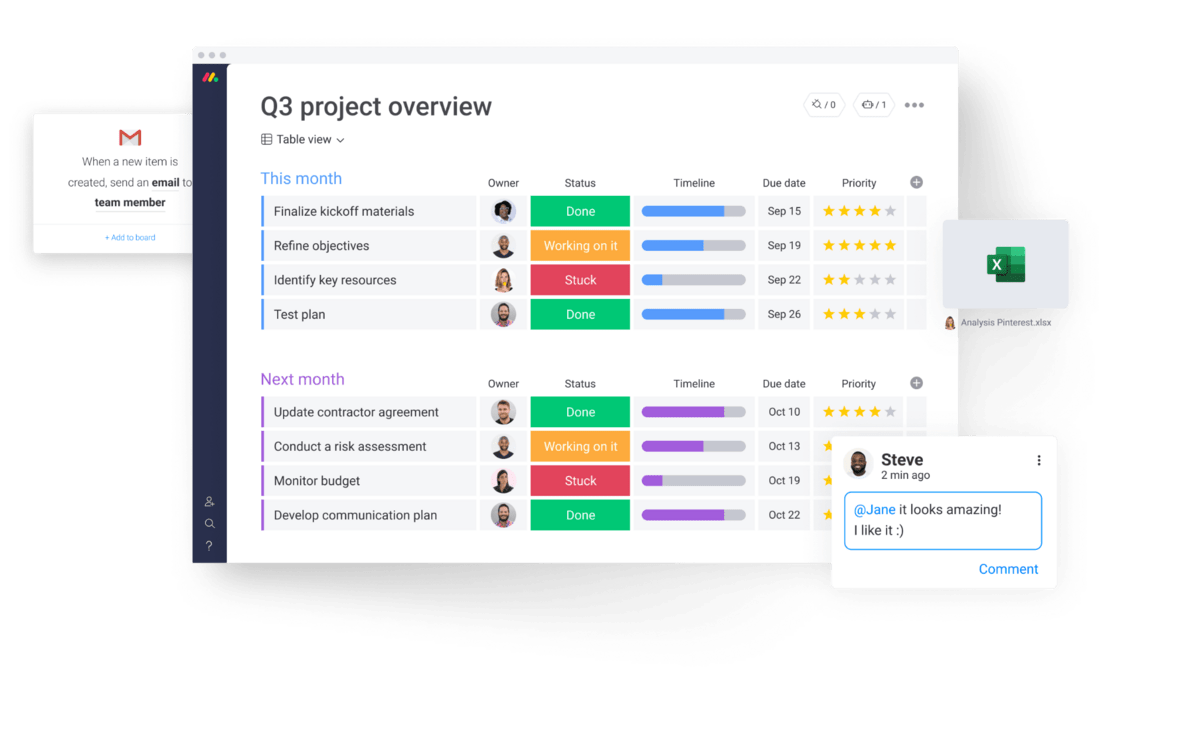
So is monday.com a good choice for marketing information management?
In short, yes. Let’s explore some of our key features to show you why monday.com is an ideal choice.
Cross-functional collaboration
Collaboration is important. If your team can’t collaborate efficiently, it can affect the entire productivity of your workflow.
At monday.com, not only do we help teams collaborate within their teams, but also across departments. Teams can share documents and files, add comments to tasks, and even provide updates to everyone involved — no matter what team they’re from.
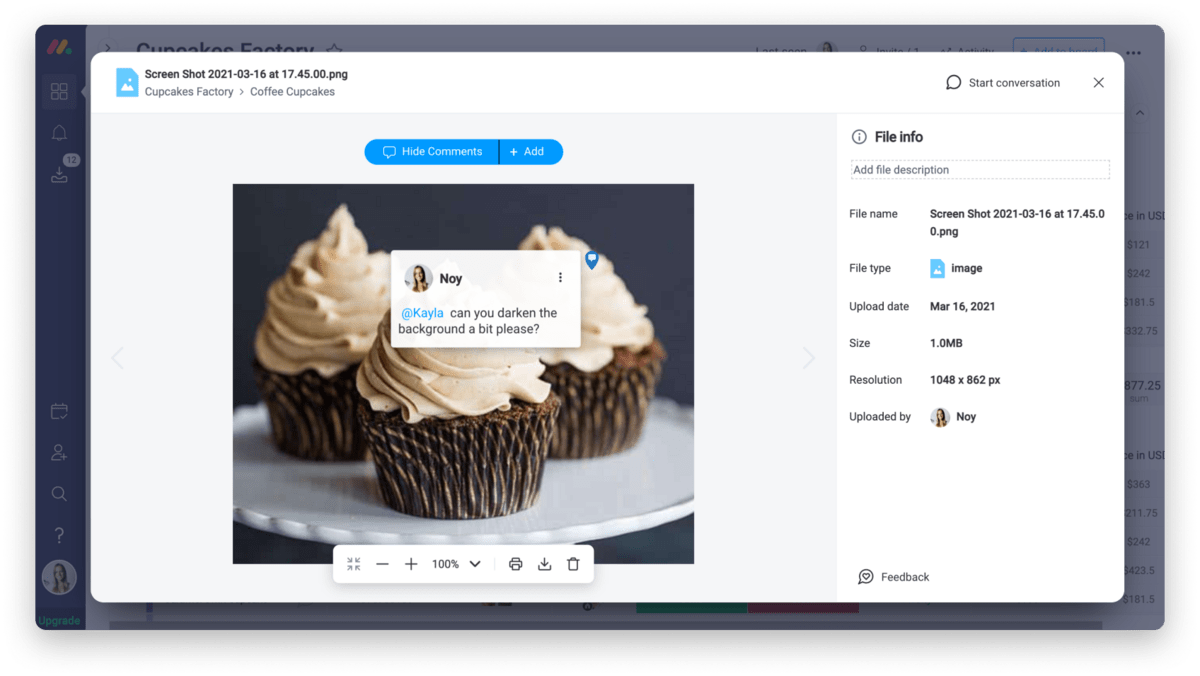
As we’ve already mentioned, cross-functional collaboration is one of the key benefits of marketing information management. With this feature, teams can effectively manage and share their marketing information hassle-free.
Integrate with external tools and platforms
Are you already using external platforms for your marketing activities?
Don’t worry. At monday.com, you can consolidate your work with our integrations.
From Mailchimp and Facebook Ads to HubSpot and Salesforce, you can connect monday.com with the marketing tools you already use. As a result, all your marketing information is stored in the same location, making it easy to track, monitor, and analyze.
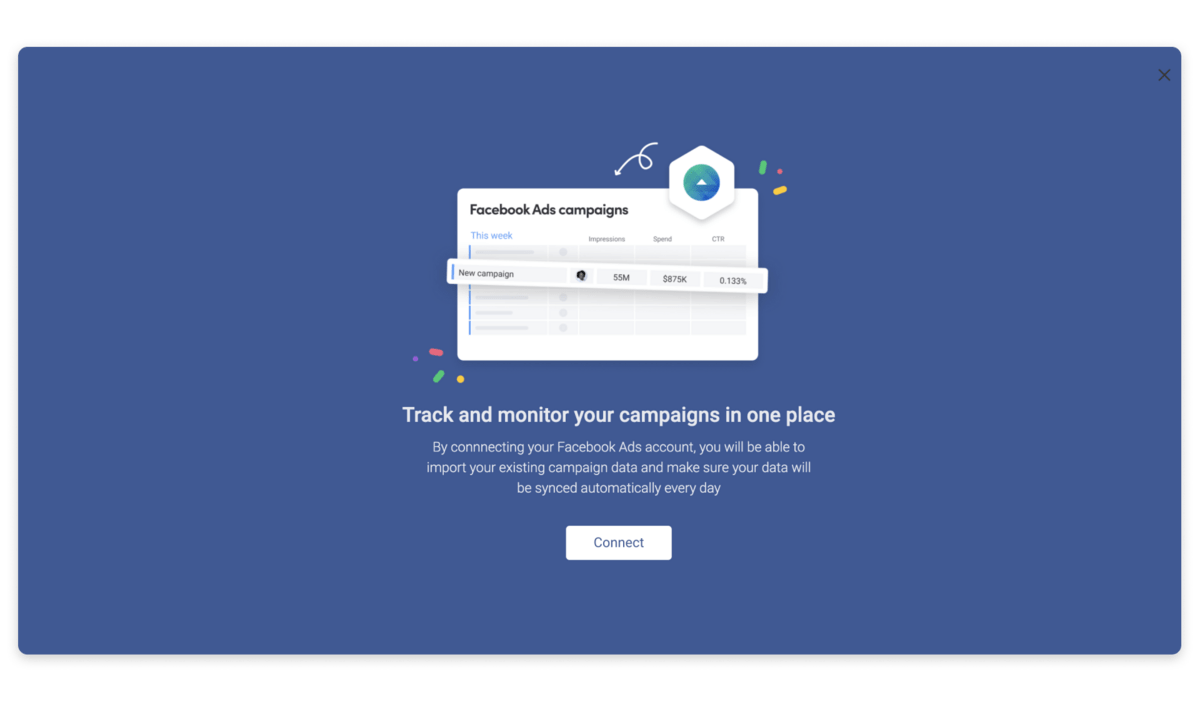
Automate your workflow
When it comes to marketing information, automation can help you manage your marketing information as efficiently as possible.
And the good news is, monday.com has plenty of automations to choose from.
We have a whole selection of ready-made automation recipes, as well as the option to create your own from scratch. As a result, you can spend less time managing the information and more time focusing on growing your business.
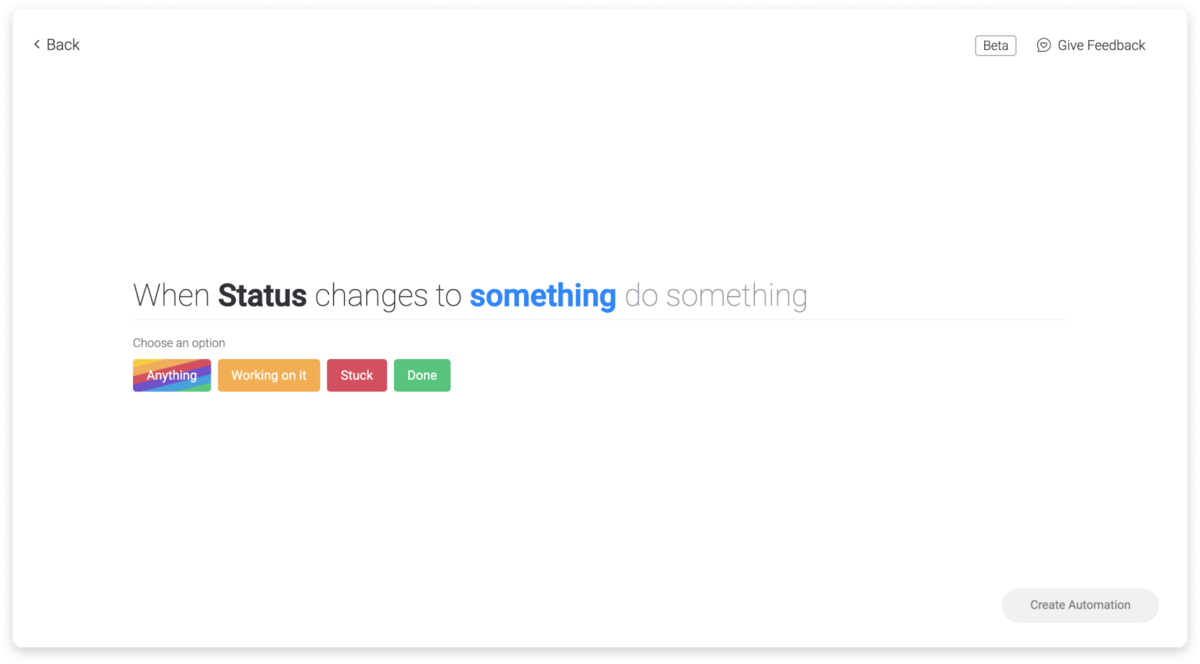
Get started with marketing information management today
If you’re not already tracking and managing your marketing information, you could be missing out on some vital information to help grow and develop your business.
Take a look at monday.com to get your marketing information organized and streamline your workflow. Our platform helps you track and manage your marketing activity and streamline your workflow at the same time. It’s a win-win.
Take a look at our pricing options to see which plan is right for your business. Once you’re up and running, we’d suggest getting started with our marketing plan template.

